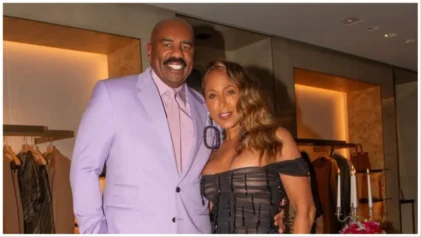As the saying goes, “necessity is the mother of invention,” but ask Eunice Cofie, the president and chief cosmetic chemist of Nuekie, and she might replace “necessity” with “pain.”
“As a little girl, I was constantly picked on because of my dark skin,” the Tallahassee native confides.
“I was called all kinds of names; girls would pull my hair; I was even spit on. The thing that saved me was my father introducing me to science.”
Cofie says winning her first science fair was the defining moment in her life. Traumatized from years of teasing, her achievements in science gave her a sense of confidence and purpose. She ultimately enrolled in Florida Agricultural and Mechanical University (FAMU) as a biochemistry major. A chance encounter single-handedly changed her life trajectory.
A chemistry professor taught her class how to make lotions and hair relaxers in a lab. He wanted them to be able to practically apply the organic chemistry they were learning.
But Cofie quickly became enamored with the process of using science to create beauty elixirs from scratch. She began to conduct research with her professor, and, under his wing, she learned the science and business of the cosmetics trade.
Her cosmetics startup, Nuekie, is an innovative health and beauty company for people of color that pairs traditional African medicine with cutting-edge beauty technology to create dermatological products specifically formulated for brown skin.
A rising star in the world of STEM (science, technology, engineering and mathematics), she’s been honored by the World Economic Forum as a Young Global Leader and named one of Forbes’ 20 Youngest Power Women in Africa.
More importantly, she is using her passion for science to develop products that will help women, all over the world, feel comfortable in their own skin.
For women of color, the quest for clear skin and complimentary makeup can seem daunting. Quality options are slim, and although brown people make up three-quarters of the world’s population, the ethnic skin care market is still vastly undertapped.
“When you look at the major companies like Johnson and Johnson and Procter and Gamble, they tend to believe that one size fits all when it comes to health and beauty products,” Cofie said.
“We have different physiological needs in comparison to other populations”.
These physiological differences — variations in pore size, skin tone and hair texture — largely account for the absence of specialized ethnic skin care. Products react differently across skin types, and the high costs associated with research and development for melanin-specific products, until recently, were discouraging to mainstream cosmetic companies.
That narrow outlook is history. Multicultural skin care is the future for cosmetic giants aggressively pursuing new growth vectors in an otherwise stagnant, oversaturated industry. In 2014, the multicultural beauty market grew 3.7 percent, outpacing the overall health and beauty market.
Accordingly, L’Oreal and similar giants are investing billions in the acquisition of niche ethnic brands, like Carol’s Daughter, which it purchased in 2014, and Niely Cosméticos, the largest independent hair product company in Brazil. Their investments are also funding expanded research and marketing initiatives targeting people of color.
The pot of gold for these companies are rapidly emerging markets in Africa, Asia, Latin America and the Middle East, and multiethnic consumers, as the rise in interracial couples spawns new skin types and behaviors.
Cofie’s startup is still in its nascent stages — she officially launched two years ago — but in terms of innovation, she is ahead of the game. Prior to selling a single item, she spent years in her lab researching skin-care solutions to common ethnic skin disorders, like hyperpigmentation and acne.
For funding, almost always an obstacle for young entrepreneurs, Cofie said she bootstrapped her entire operation, relying on her personal savings and monetary awards from several major science and business grants.
Nuekie is based in her Tallahassee lab, where product development, packaging and shipment all happen in-house. She sells her two banner products, a moisture therapy creme and deep cleansing oil, in a virtual boutique, citing e-commerce as the ultimate game-changer for entrepreneurs in her position.
“It’s very hard to get into brick-and-mortar. The Internet breaks down barriers to entry in the market.”
The battle going forward, as it has been for all Black-owned cosmetic companies before hers, will be withstanding the competition of mainstream corporations hungry for market share. But she’s not too worried about slaying giants, choosing instead to focus on research, education and steady expansion. In the future, Cofie sees herself at the helm of a global beauty and health company that serves the specific needs of the multicultural population.
“Right now we’re focusing on the dermatology sector, but the vision is to look at other issues that people of color deal with such as diabetes, hair loss and infant mortality,” she said.
“My goal is to go global. I want to be the global leader.”
To learn more about Eunice Cofie’s skin-care line, visit Nuekie.com.



